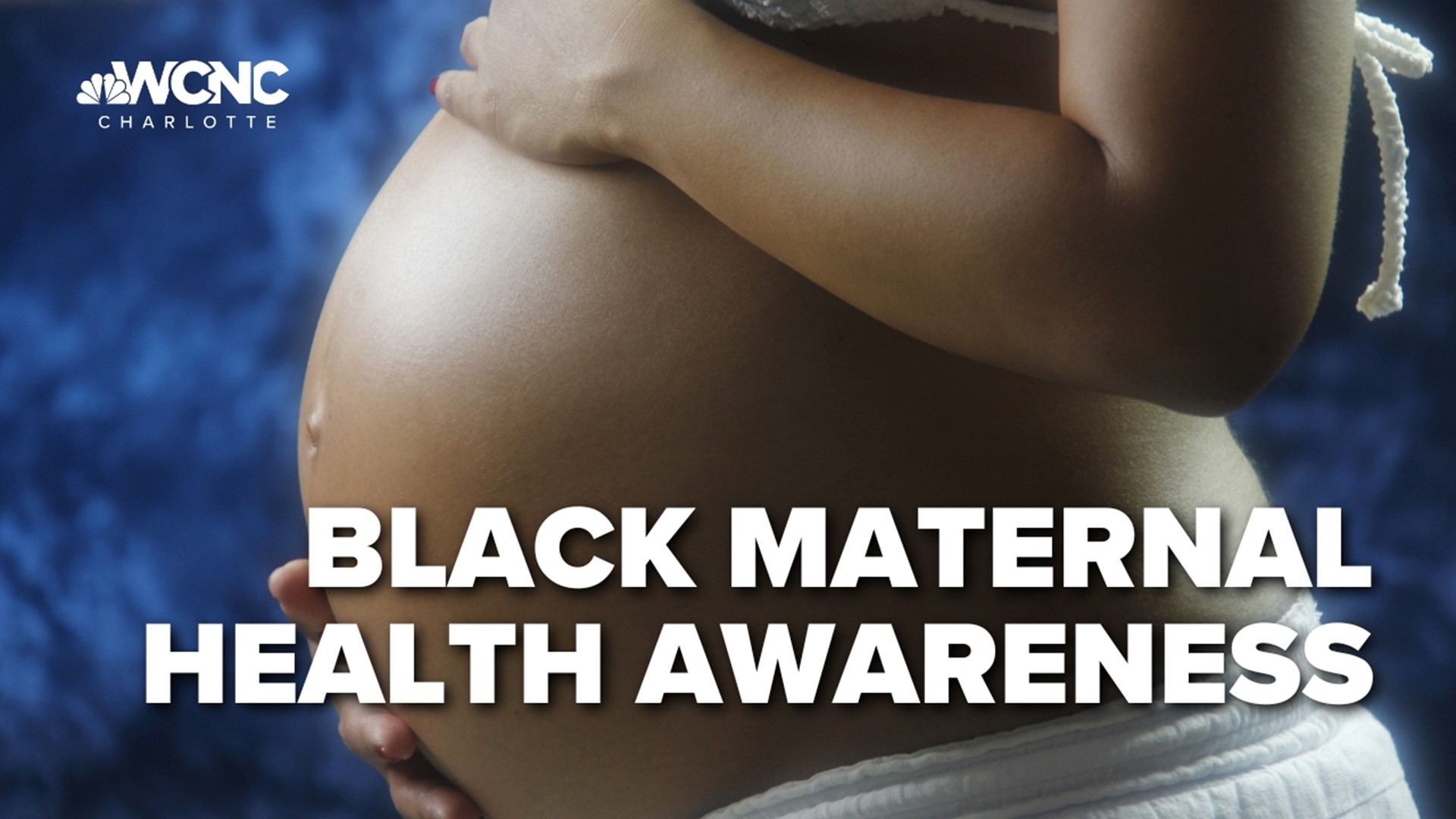CHARLOTTE, N.C. — Jessica Rushing is a mother to three healthy babies.
The Charlotte woman remembers giving birth to her last daughter, Sonoma, about a year ago.
"A nurse had come in to take my blood and she was struggling to get blood out. And she was like, ‘you know what, that’s enough. I’m tried of poking and prodding you…” Rushing said.
But without follow up, Rushing said that she left the hospital not quite feeling like herself.
It just so happened there’s a midwife in her husband’s friend group, who asked Rushing a few more questions.
"So, [the midwife] checked my hemoglobin level," Rushing remembers.
The midwife said that Rushing should never have been released from the hospital.
Thankfully, Rushing and Sonoma are healthy today.
However, that’s not the story for many Black women, both across the country and in the Carolinas.
Data from the South Carolina Department of Health and Environmental Control (SCDHEC) shows that infant mortality rose 12% from 2020 to 2021.
But that same data shows Black infants continued to suffer disproportionately, dying at a rate nearly 2.5 times that of white infants.
North Carolina’s Foundation for Health Leadership and Innovation found that Black women are nearly three times more likely than white women to die while pregnant, or within a year of childbirth.
Part of the problem is rooted in what happens in hospital rooms.
"We have seen it play out racially in that Black women may or may not have their concerns listened to or receive the same treatment as White women," said Dr. Pam Oliver with Novant Health. She breaks it down to something called "implicit bias."
"I’m not looking at you and saying ‘I’m going to give you something different because you’re Black vs White,'" Dr. Oliver explained. "In healthcare that would show up as me looking at two women who have a very similar condition and, whether I realize I’m doing it or not, I may treat, respond to and/or listen to those women in a different way."
A different way that could lead to missed diagnosis and less care.
There’s yet another factor at play, as well.
The weathering effect theory-- studied by the National Library of Medicine-- found failing health due to being exposed to race-related stress—may impact Black Americans the most.
"It’s a change in your body related to the chronic stress that is tied to racism," Dr. Oliver said.
And while experts and activists are seeking solutions to address this disparity in maternal healthcare, Dr. Oliver added that there has to be more than one answer.
"We have to break down some of the barriers that keep women from taking care of themselves… put in place processes and follow those to make sure we’re responding to women’s concerns.. .we have to advocate for more changes in our community that support women who that need more."
As for Rushing, she said that she is finished having kids. But, she has some advice for Black women hoping to be moms one day.
"Make sure you have the tough conversations with your doctors, with your midwives, with your nurses and just say I know what the stats look like, and I’m not going to be a statistic. So take care of me."
Dr. Oliver added that hospitals are working to be part of the solution too.
Some of these solutions include education on implicit bias, fine tuning processes in healthcare and looking at data to understand disparities, in the hopes of eliminating them.
Kia Murray: Contact Kia Murray at kmurray@wcnc.com and follow her on Facebook, Twitter and Instagram.
SEEKING SOLUTIONS
WCNC Charlotte is committed to reporting on the issues facing the communities we serve. We tell the stories of people working to solve persistent social problems. We examine how problems can be solved or addressed to improve the quality of life and make a positive difference. WCNC Charlotte is seeking solutions for you. Send your tips or questions to newstips@wcnc.com.

